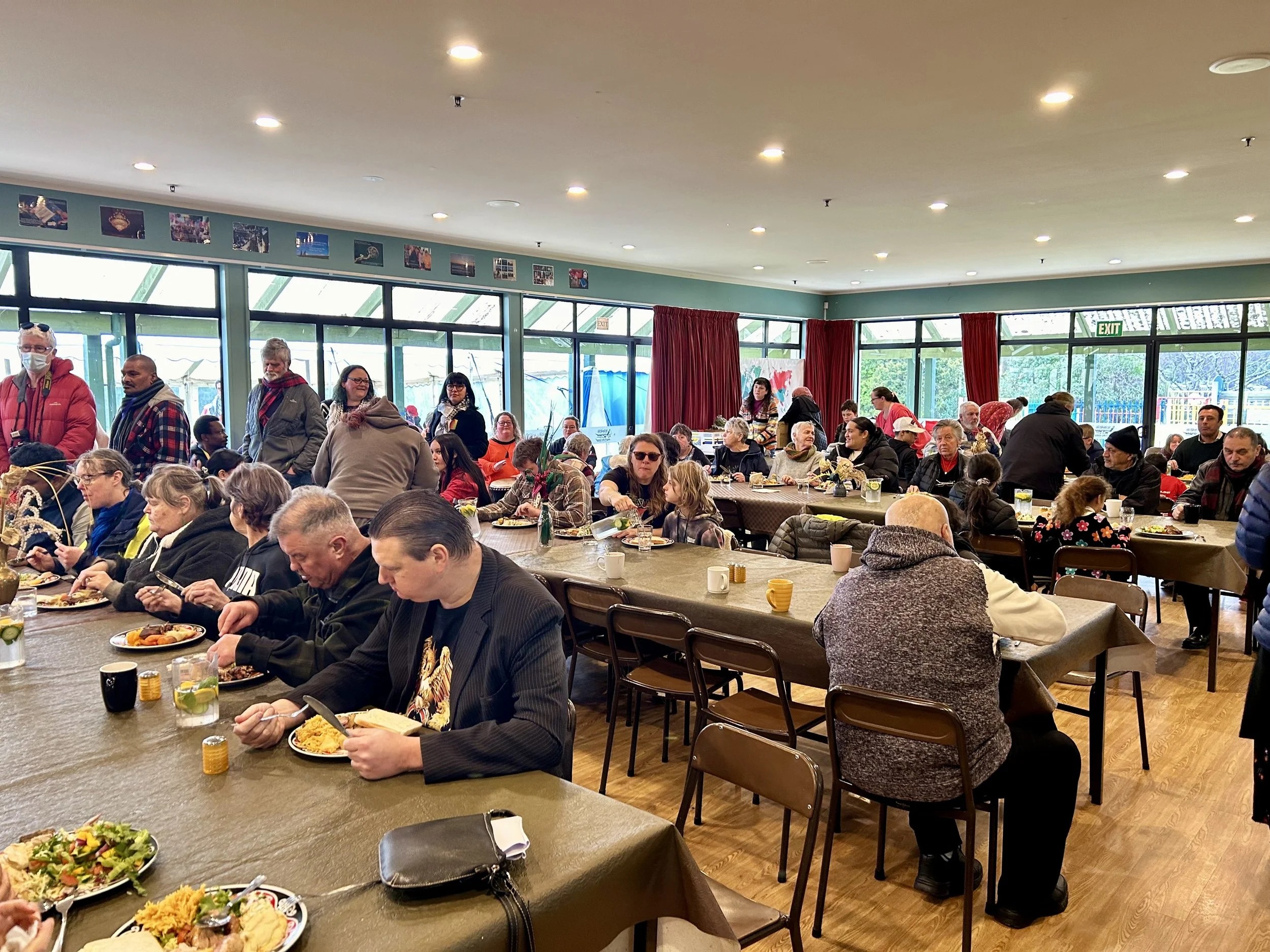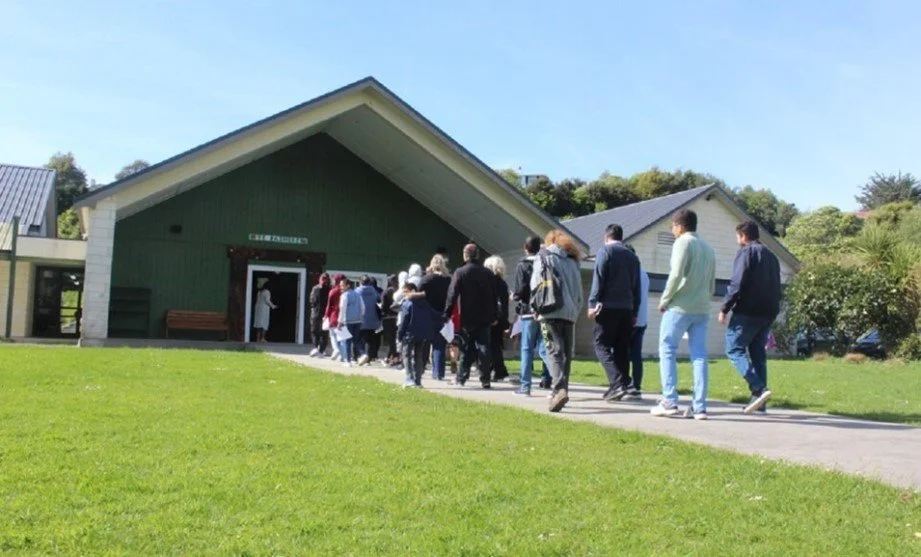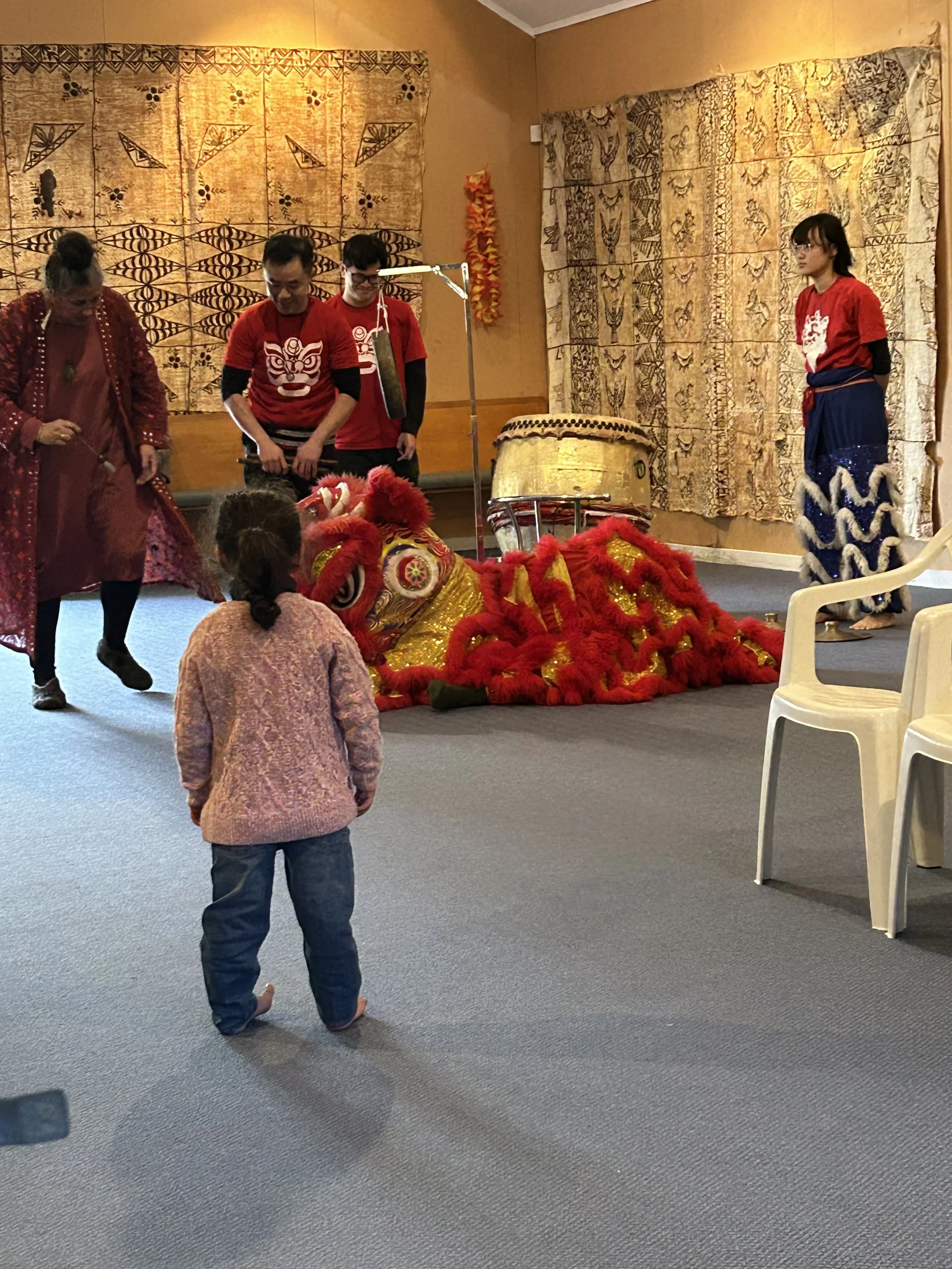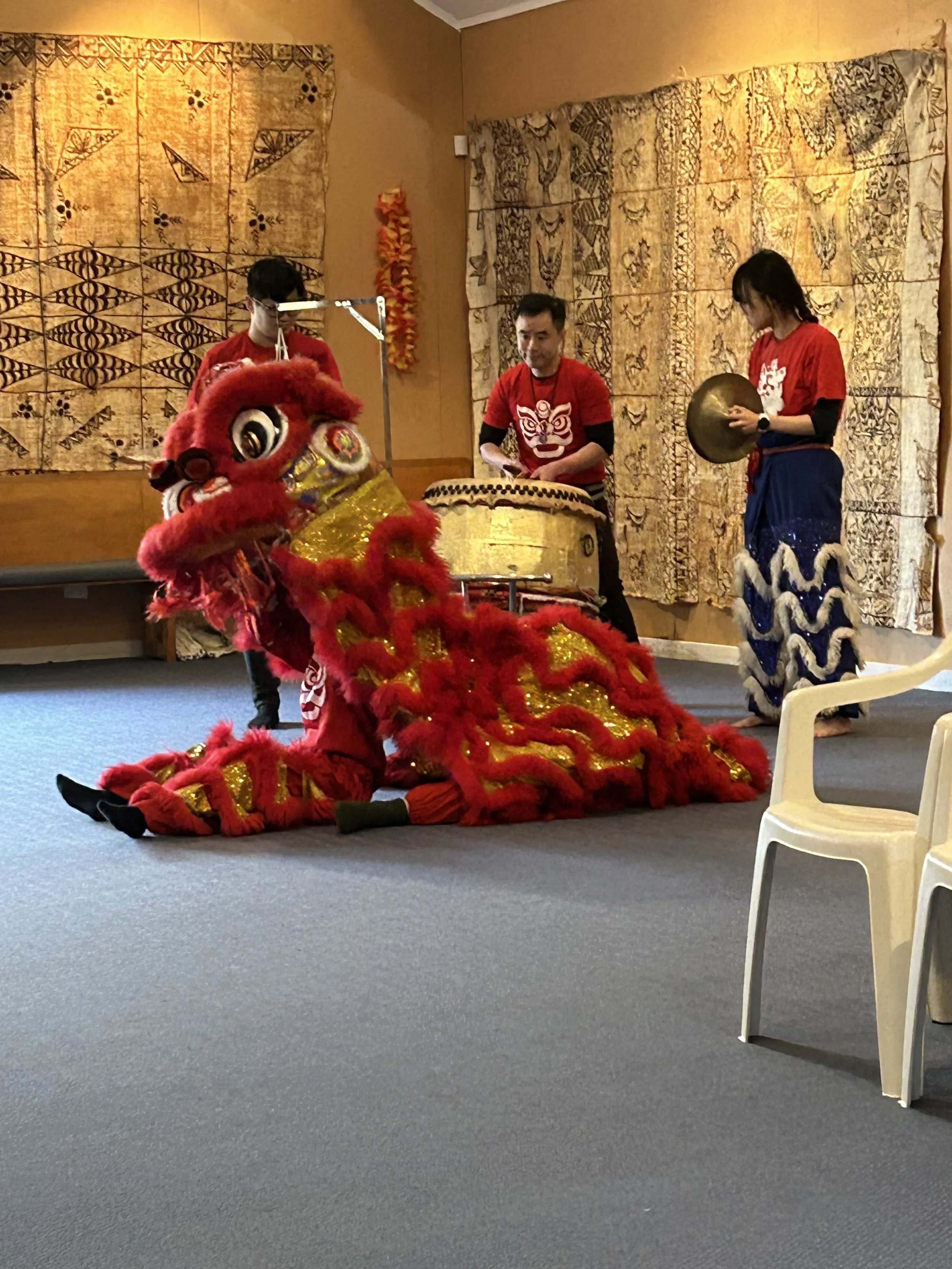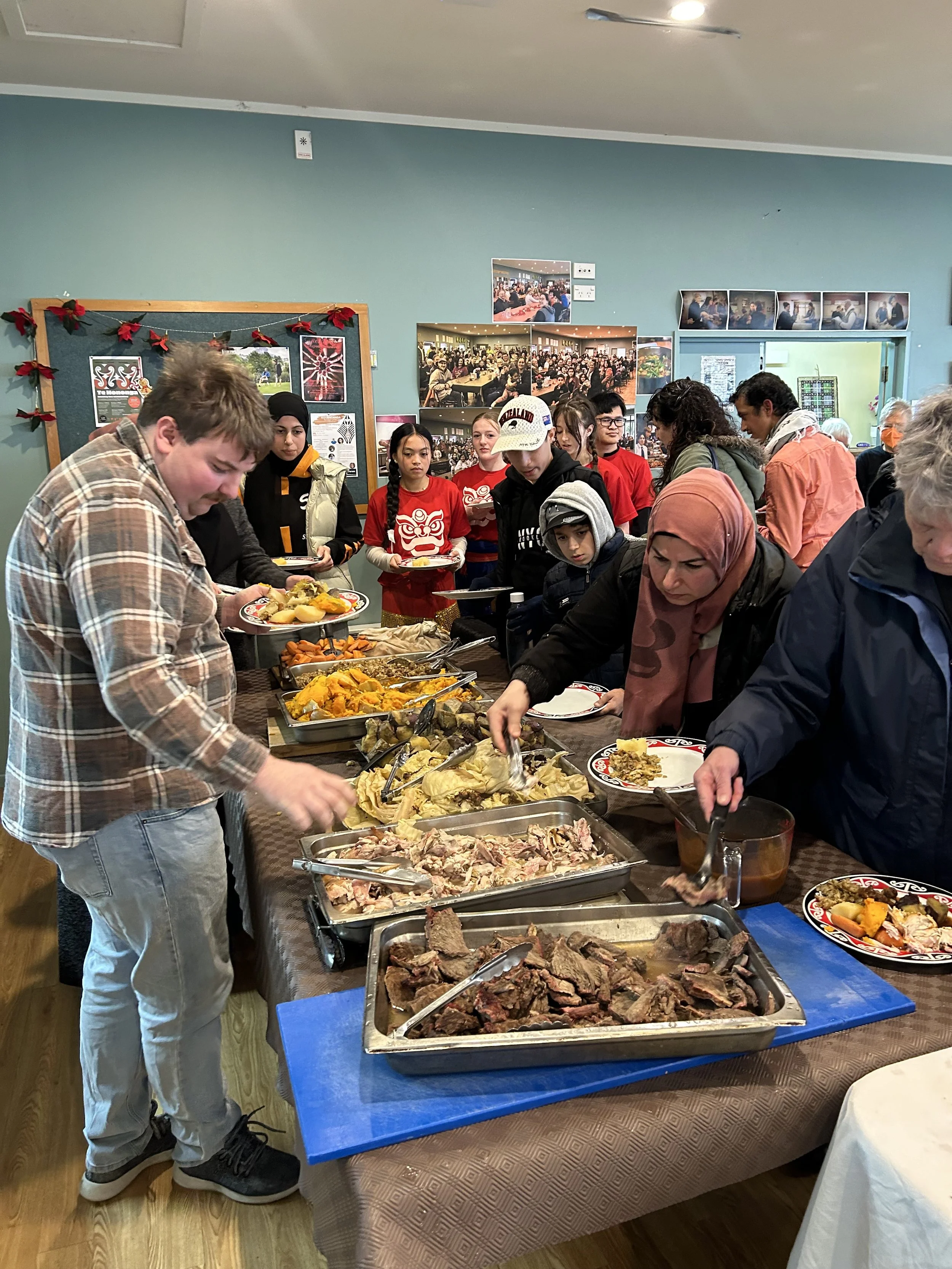Ko Ngā Rourou Manaaki - Baskets of Hospitality
People from the Presbyterian whānau in Otepoti, Dunedin, join with others in the community to welcome newcomers through pōwhiri at Araiteauru marae.
With thanks to Rev Dr Murray Rae for this story. It also draws on an article by NZ Red Cross
A Welcome Rooted in Manaakitanga
The Ko Ngā Rourou Manaaki project commenced in 2018 as a welcome extended on behalf of the City of Dunedin to incoming former refugees, largely from Syria and Afghanistan. This followed the involvement of a number of the organising group in lobbying Government to make Dunedin a refugee settlement city and generating widespread support in the community.
The strong attendance at all the pōwhiri that have been held so far, along with many appreciative comments from attendees, and very positive media coverage, have convinced the organising team that the project contributes positively to community building in Dunedin and is worth continuing.
Pōwhiri as a Bridge Between Cultures
When the project began, and when there was a steady stream of refugees coming into Dunedin through the New Zealand Government’s resettlement programme, four community pōwhiri were held each year. That was reduced during the Covid years and now 2-3 pōwhiri are offered each year with the organising group also assisting with other events such as market days connected with race relations week, and whenua days when work is done on the marae grounds and gardens.
The pōwhiri which cost $6000 - $6500 each time are funded through grants. Grants have been received from the likes of the Justice-Compassion Trust of Aotearoa New Zealand. The pōwhiri are organised by the core group and there is a team of around 15 further volunteers who assist with food preparation and service, setting up and cleaning the marae, and hosting guests at the pōwhiri.
The project provides a place of manaakitanga (welcome, hospitality) in Dunedin, especially for former refugees but also for a wide variety of cultures and ethnicities. The aim of the initiative is to provide the opportunity for former refugees, new migrants and newcomers to Dunedin to experience a uniquely New Zealand welcome that will help them to feel part of the Dunedin community. The pōwhiri is followed by lunch and entertainment from a range of cultural groups. This gives members of those groups, who may have never been on a marae , to experience the warmth of a marae welcome along with building connections with the community.
Invitations to the pōwhiri are extended to the wider community, creating an occasion of social engagement between newcomers to the city and other Dunedin residents.
A Place of Connection and Healing
The most satisfying outcome of this initiative is that the marae has become a place where former refugees feel welcome, but it has been surprisingly successful as well in attracting recent immigrants from all over the world who are keen to experience something of Māori culture.
The pōwhiri typically attract 100 – 150 people each time from a wide diversity of backgrounds and cultures with at times up to 26 different nations being recorded as the place of origin for those attending. As an example, there were around 130 people from children to grandparents present at the event held on July 6th 2024, a good number of whom (around 40) were former refugees. Asian and Pacific Communities were also well represented.
At the July event a team of Chinese performers presented a Lion Dance, and Pacific drummers also entertained the guests. The warmth of fellowship, shared enjoyment of the diverse cultural traditions, and genuine appreciation of the tikanga and manaakitanga of the marae are especially gratifying outcomes of the project.
The July pōwhiri took place during the season of Matariki and the focus was particularly on the remembrance of those who have died. This was especially poignant as just a few weeks earlier a young Tongan boy had been fatally stabbed at the bus hub in Dunedin. His family came to the pōwhiri and the tragic death was acknowledged through prayers and through the playing of taonga puoro. The prayers were Christian prayers as was appropriate for the Tongan Christian family and people of other faiths recognised and respected the appropriateness of this.
An Expression of Shared Faith and Purpose
The pōwhiri organising group is not an initiative of any single church group and not all of the project team are Christians. But our project is wrapped in prayer both at the beginning and end of our project meetings and at the powhiri themselves. People involved in the planning group include Presbyterians, Baptists, Methodists and Catholics while others find their spiritual home at the marae itself.
“Ko Ngā Rourou Manaaki, Baskets of Hospitality, is an expression of the biblical imperative to seek the welfare of the city, to love our neighbours and to care for the vulnerable and marginalised.”


